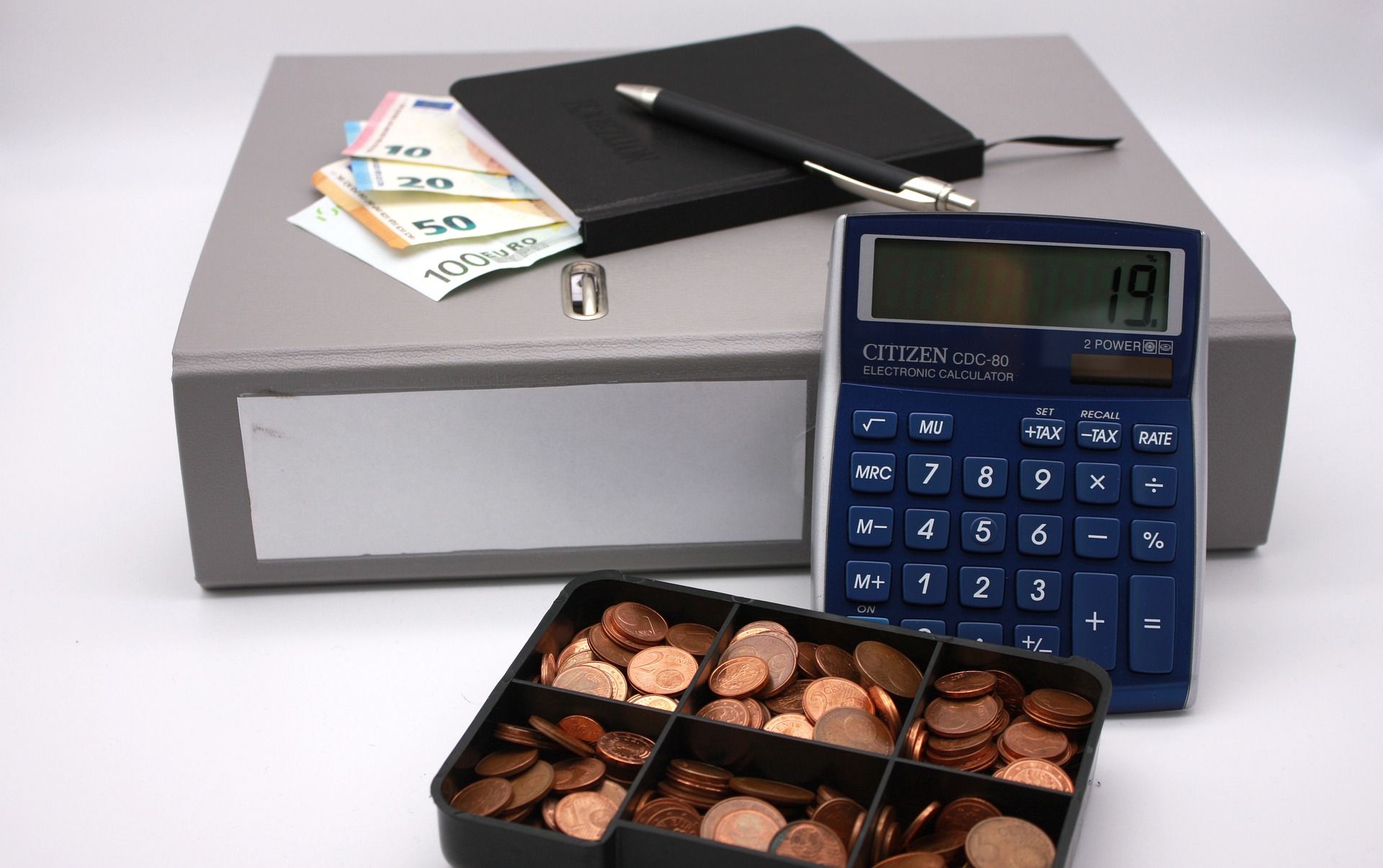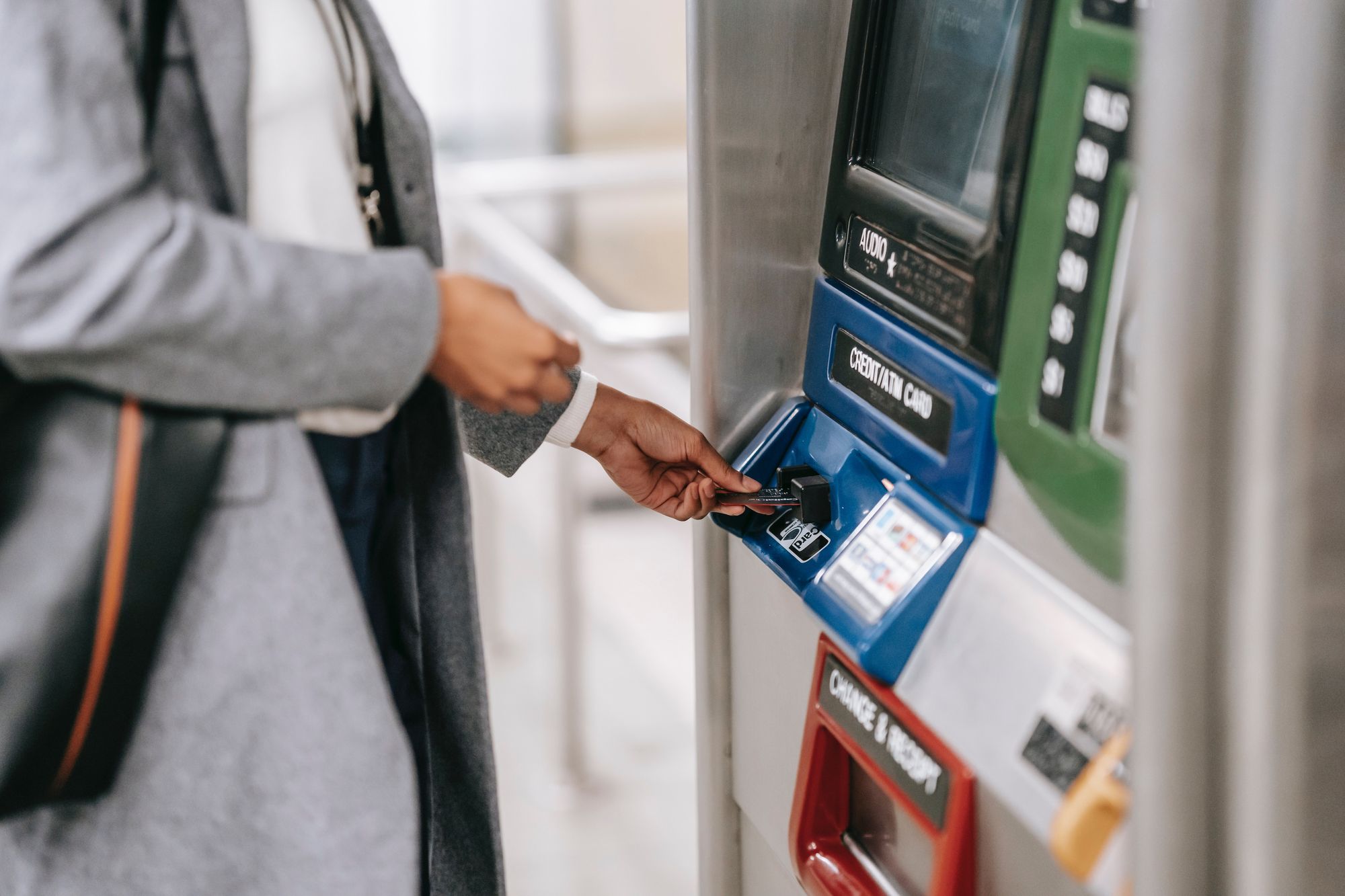Tax Identification Numbers (TINs) are used to identify an individual or business on government documents in the United States. The Internal Revenue Service makes it a requirement to apply for these IDs for tax purposes. Banks, financial institutions, and other organizations also need TINs for several reasons.
However, different laws apply to individuals, professionals, entities, workers, and enterprises for compliance and tax payment. SSN, EIN, and ITIN are different taxpayer identification numbers used for individuals and businesses. In this post, let us take a closer look at these federal IDs, their application process and uses as well as their similarities and differences.
To further simplify tax management and ensure compliance, AI-powered platforms like ERP.AI help streamline reporting, and reduce human error in complex business tax workflows.
What Is An SSN?
The most common taxpayer identification number in the United States, the Social Security Number (SSN) is a 9-digit number assigned to citizens and permanent residents. The format of this number is XXX-XX-XXXX.
Regardless of the type of work, each individual should apply for the SSN to receive payments or wages. It is also required to register for voting, apply for loans, open bank accounts, apply for EITC (Earned Income Tax Credit) and collect social security benefits.
One can obtain an SSN regardless of the immigration status if you have a lawful alien status (non-U.S citizen permitted to live in the country). The SSN is a taxpayer identification number that is written on the Social Security Card and contains a lot of personal information, so it should be protected and kept safe. You can give your SSN in most cases instead of presenting the card.
What Is The Use of SSN?
The government uses Social Security Numbers to track individuals' employment history and earnings and determine their eligibility for benefits like Medicare and Social Security. You also need to provide this number to apply for a passport or driver’s license, open a bank account or apply for public assistance or loans. Businesses can use their SSN or EIN when filing tax returns.
Banks and financial institutions use taxpayer identification numbers like the SSN to verify the credit of the applicant while employers use it to confirm the applicant’s eligibility of working in the United States and also to report their income. Employers generally request the Social Security Numbers from freelancers, contractors, and employees to be able to invoice them, distribute wages and withhold a part of salary for taxes.
If you plan on hiring employees, you must keep the SSNs along with other paperwork in a safe place, since many states have laws preventing employers from disclosing these details to the public. For example, Texas and California prohibit mailing forms with employee SSNs except for specific tax, application, and enrollment forms.
Moreover, the federal government does not allow companies to obtain information about new hires from the Social Security Number Verification Service until they have started working with the employer or established payroll records.
Taxpayer identification numbers such as your Social Security Number are assigned to you for a lifetime and there is no expiration. However, you can apply for a new one in case of any abuse, harassment, danger, or identity theft. Getting a new SSN does not mean the old one gets canceled; government agencies, the SSA, and companies may still keep your records under your old number.
How To Get An SSN?
Applying for a Social Security Number is free and involves a simple process. The SSA (Social Security Administration) also issues a new social security card for free if lost/stolen. To obtain your SSN, visit the SSA official website and complete the form SS-5. You can also get the form by calling 1800-772-1213 or in person from the local social security office.
Along with the application form, you are required to submit some documents to obtain your SSN:
- Proof of Age such as a birth certificate or passport
- Proof of Identity with photo; it can be a passport, driver’s license, or similar document containing your legal name and information
- Proof of U.S. citizenship or immigration status
Once the SSA receives your documents and verifies your information, you can expect to receive your SSN through the mail in about 2-4 weeks. Applicants older than 12 getting their identification number for the first time should appear in person.
What Is An EIN?
Employer Identification Number (EIN) is a taxpayer identification number issued by the Internal Revenue Service to identify a business entity. It is a 9-digit number like the SSN but formatted differently as XX-XXXXXXX. Any business operating in the United States can apply for an EIN if it meets any of the following:
- Pays employees
- Operates as a partnership or corporation
- Has been inherited or bought
- Has a 401k retirement plan
- Is a multi-member LLC
- Has filed for bankruptcy
Getting taxpayer identification numbers like the EIN is mandatory for business entities that need to file tax returns or pay employees. However, some businesses like sole proprietors and single-member LLCs don’t require an EIN as these business people report their income and expense details on their tax returns. Also, freelancers who don’t employ others don’t need an EIN. You can refer to the official guidelines of the IRS to find out whether you need an Employer Identification Number.
An EIN does not expire and cannot be canceled or transferred to somebody else even if the entity closes. You can contact the IRS and request to close your account. To close an account, you need to send an application with the EIN, name, address, and reason for closing the account. Include a copy of the EIN assignment letter and send it to the IRS office.
What Is the Use of EIN?
An Employer Identification Number is much like an SSN for a business. As businesses are regulated at the state level, different companies in different states can have the same names. Assigning unique taxpayer identification numbers, such as EINs, enables state and federal governments to distinctly identify companies with the same names and avoid any confusion. This also implies that all your businesses require their own unique EIN.
Business owners interested in hiring people or forming a corporation, partnership, or multi-member LLC should obtain this taxpayer identification number. Banks and financial institutions also require these taxpayer identification numbers when businesses open an account to apply for a loan or other forms of credit. However, there are some exceptions for single-member LLCs and sole proprietorships.
Local and state government agencies ask for your EIN when you apply for a permit or license while the federal government requires the number for your tax payment and return filing. As mentioned above, SMLLCs and sole proprietorships don’t require to produce the EIN for these purposes; an ITIN or SSN does the job.
A taxpayer identification number such as the EIN is issued for a lifetime and does not need renewal. Once obtained, you need not get it changed except under special circumstances. For instance, you don’t require a new taxpayer identification number if your business name is changed or it is moved to a new location. However, if your business undergoes major changes like in structure or ownership, it becomes a new entity and will require a new EIN to recognize the new operation.
How To Get An EIN?
An application for an Employer Identification Number is free and can be done in multiple ways as explained below. You should complete and submit the Form SS4 if applying by mail or fax.
1. By Phone
You can apply for your Employer Identification Number over the phone by calling the number 267-941-1099 from Monday to Friday between 6-11 am ET. This method is particularly useful for international/non-resident applicants living outside the U.S.
A representative asks you questions from the application form, so it is a good idea to fill out the form in advance. The answers you give over the phone are considered to be your application and used to register your business with the IRS.
When you have answered all the questions, the IRS representative may create your account and provide you with your tax identification number. You can write this number in the Form SS4, sign, date, and send it within 24 hours to the fax or address provided.
2. Online
Online application is the quickest way to obtain your EIN and is available only for legal U.S. residents. To apply online, you can open the application page on the IRS official website and follow the steps.
Once your application is submitted, the information is instantly verified and you can receive your EIN confirmation without any waiting time. You can then download and print your document for further use.
3. By Mail
Applicants can use mail to submit their applications and get their number delivered to the address in about 4-5 weeks.
4. By Fax
Just like mail, you can submit your application form by fax to the numbers provided, all of which are accessible 24x7. Ensure that you include your fax number on the cover sheet because the IRS sends you your EIN in about 4-5 business days on the number.
Whatever method you use to apply for your EIN, the following information is required:
- The legal name of the business
- SSN or ITIN of the owner, officer, or trustor
- Legal name, trade name, type of business entity, and address
- State or country of incorporation
- Number of members for LLC
- Date of entity formation
- Main activities of the business
- Maximum number of employees expected to be hired in the first year and the date of first salary payment
You might receive your EIN immediately in some cases, but it can take up to two weeks for the IRS to enter your number into the records. You may have to wait to be able to file a return, make a payment, or pass an IRS TIN matching program.
Almost all states, except Wyoming and South Dakota, require businesses to pay taxes like employment, income, or gross receipt tax which needs a state EIN which is different from a federal EIN.
You also need an identification number for your business to be able to hire employees, so you must apply for a state EIN at some point if you would like to expand your business. The process for state EIN is quite similar to the federal application. However, it is best to check with the department as the process can vary between states.
What Is An ITIN?
Another taxpayer identification number issued by the IRS, ITIN stands for Individual Taxpayer Identification Number. Like an SSN, ITIN is a 9-digit number in the format XXX-XX-XXXX where the first digit is always a 9.
It is assigned to individuals who must pay taxes but are not eligible to get an SSN. It applies to non-residents, foreign nationals, undocumented immigrants, and all others required by the IRS to file federal tax returns.
What Is The Use of ITIN?
The primary purpose of the Individual Taxpayer Identification Number is tax identification and reporting, particularly for those who own a business in the United States. This taxpayer identification number cannot be used for any other purpose except taxing.
Most importantly, having an ITIN does not automatically permit you to work in the country, enjoy the social security benefits and SSN eligibility or qualify dependents for EITC (Earned Income Tax Credit). If you have a pending SSN application, you cannot get an ITIN because you can have only of the two.
How To Get An ITIN?
Those who are interested in obtaining an Individual Taxpayer Identification Number should fill out the Form W-7 and submit it with a copy of the federal income tax return, identity proof, and foreign status documents. Applicants can either mail the application to the IRS Service Center, submit it in-person at the designated assistance center or apply in-person using an IRS-authorized acceptance agent. It can take about seven weeks after applying to receive a letter from the IRS containing your ITIN.
Form W-7 can also be used to renew your expired Individual Taxpayer Identification Number. To apply for a renewal, you can submit the form along with your original identification document and any other documents required in support of your application. It can be submitted in the same way as a new ITIN – by mail, with an IRS-certified acceptance agent or local assistance center.
It is worth noting that spouses and dependents cannot renew their ITINs beforehand. They can renew their taxpayer identification number only when they file a return or when somebody else claims them for a tax benefit. In such a case, you must attach your federal tax return to your W-7 form for renewal.
SSN Vs. ITIN Vs. EIN – Key Differences
SSN, EIN, and ITIN are different taxpayer identification numbers used by individuals and businesses for a variety of applications. Now that we have obtained a detailed understanding of each, let us discuss how these three tax numbers differ from one another.
1. SSN Vs. EIN
Both SSN and EIN are 9-digit taxpayer identification numbers issued for a lifetime and there is no need to renew them. However, SSN is a part of your personal identity while EIN is associated with your business. Social Security Number is intended for personal use; an Employer Identification Number is for business owners willing to hire people. You can obtain an EIN without an SSN using the form SS4.
For businesses, SSN and EIN are quite similar in function as they both allow government agencies to keep track of the company and its taxes. Most businesses require a state tax identification number and EIN to conduct operations, with an exception for single-member entities. Some banks and financial institutions also require EIN when opening an account with them. You might also need to provide your EIN to clients and suppliers for payment processing.
2. ITIN Vs. EIN
The two taxpayer identification numbers don’t have many similarities except that they are 9-digit each. The primary difference between the two is that an EIN is used to identify a business entity while an ITIN is assigned to individuals who need to file a tax return but don’t have an SSN because they are non-resident business owners.
In other words, an EIN is just like SSN for a business and an ITIN is like an EIN for those who are not permitted to work in the United States. EIN is for business tax payment while ITIN and SSN are for personal taxes.
3. ITIN Vs SSN
A Social Security Number is for all U.S. citizens and authorized residents like visa-holders and green cardholders. On the other hand, an Individual Taxpayer Identification Number is for those with a foreign status like non-resident aliens and undocumented aliens running a business in the country. ITIN is also a requirement for foreign entities like LLCs, corporations, and partnerships operating in the U.S.
The primary difference between ITIN and SSN is that ITINs are meant for tax purposes while SSNs are general identity cards that offer additional benefits and access to social services along with personal tax payment.
In other words, you need an SSN to be able to work in the country and an ITIN to do business in the country. No individual can possess both SSN and ITIN at the same time. If you receive your SSN even after holding an ITIN, the IRS must be notified of this so as to consolidate your tax records under the SSN.
Which Taxpayer Identification Number Should Be Used For Your Business?
As discussed above, most business entities registered with the IRS will require an EIN (Employer Identification Number) even if they don’t wish to hire people. Holding an EIN is also important as it helps keep personal and business finances different.
ITINs and SSNs are only useful for businesses that don’t need to file taxes differently from the owner. For example, SMLLCs and sole proprietorships without employees generally use the ITIN or SSN of the owner to file taxes as they fall under the owner’s returns.
What Happens If You Use A Wrong TIN On The Return?
If you make a mistake like writing the wrong tax ID number on your tax return, the IRS will probably take note of it and send you a notice about correcting it by the date specified.
Such notice should also mention the steps you can follow to correct the mistake. The IRS can also impose a penalty for each return filed with wrong information.
Can You Use EIN In Place of SSN?
It is not only legal to use EIN instead of SSN but is sometimes highly recommended. On the other hand, sole proprietors, single-member LLCs, and freelancers not willing to hire and pay others can use their Social Security Number for tax purposes.
However, it is important to keep your SSN information private and safe. Some of the reasons you might consider getting an EIN in addition to your SSN include:
- Safeguarding your privacy
- Making a professional image in the eyes of clients and institutions
- Keeping personal finances separate from business accounts
How AI Empowers Smarter Compliance for Businesses
AI is transforming tax compliance by automating routine tasks, improving accuracy, and reducing the risk of costly errors. From extracting data across receipts and financial statements to identifying anomalies in audits, AI enables faster, more reliable tax processes. Conversational AI tools also assist with real-time guidance on filing deadlines and regulation-specific queries.
Generative AI can be trained on tax codes, legal frameworks, and internal policies to generate contextual responses, draft accurate documentation, and support investigative workflows. AI enables businesses to drive strategic growth with confidence—automating financial workflows, eliminating inefficiencies, and ensuring full compliance at every step.
Key Takeaways
- All three of these: SSN Vs. ITIN Vs. EIN- are important taxpayer identification numbers, each with its own significance and applications.
- Having the right taxpayer identification numbers and using it in the right setting is crucial for your business compliance and growth. As every entity has unique needs and characteristics, it is best to decide carefully which of the numbers you and your business need.
- Taxpayer identification numbers are essential for identifying individuals and businesses in official US government documents.
- There are different types of taxpayer identification numbers, mainly SSN, EIN, and ITIN, for individuals, entities, and different use cases.
- SSN is a taxpayer identification number that stands for social security number and is issued to all US citizens and permanent residents. It is essential for opening a bank account, applying for a passport or driver's license, and other official documentation.
- SSN has wide use cases, such as checking employment history, credit history, eligibility for Medicare and other social welfare programs, and more.
- The SSN is assigned for a lifetime and has no expiration. Citizens can apply for a new SSN in cases of abuse, dangers, or if they've fallen victim to identity theft.
- EIN or Employer Identification Number is a taxpayer identification number required for businesses and acts as an identity when applying for licenses, permits, and other interactions with government bodies.
- Sole proprietorships and single-member LLCs are exempt from applying for an EIN as they report their incomes on personal tax filings.
- ITIN stands for Individual Taxpayer Identification Number and is mainly applicable for non-residents, foreigners, undocumented immigrants, and all others who are required to file Federal tax returns but fail to fit other categories.
- Unlike the others, the ITIN cannot be used for anything apart from taxation. If you've applied for an SSN, you cannot have an ITIN as you are only permitted to have one or the other.
Related Articles












